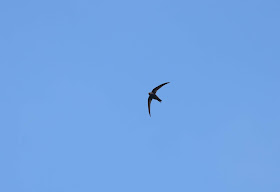Reading up on the site previously, the Heath Fritillaries appeared to be relatively straightforward and with it being a stunning summer's day, I was hopeful!

Straightforward they definitely were and no sooner had I got out of the car there were several flitting around and nectaring in the car park. My 50th UK butterfly species!


After getting a few photos, I peeled myself away to explore further and go for a walk. As it turned out, we probably only ended up going a couple of hundred metres along the path, to a fairly discreet cleared area that quite simply held tonnes more Heath Fritillaries! It was one heck of a sight and I really don't think I've seen as many butterflies in one place before. It was amazing!




We spent a good hour here enjoying the spectacle, with Em sat in the sun reading her book, although even she was stunned by how many butterflies there were! A couple of White Admiral showed themselves and my first Purple Hairstreak of the year flashed past too. Having had my fix and also helping up a poor old bloke who had a nasty fall while also looking at the butterflies, we walked back to the car.
A short way from the car park, I happened to look down to see a fresh male Purple Hairstreak sat clinging to a piece of grass by the path. An exciting find, especially as they spend the majority of their time in the top of an oak tree! The poor thing appeared to have a damaged wing though and it was very docile, resorting to crawling about a bit.



A great little visit and a surprisingly good hangover cure!









































